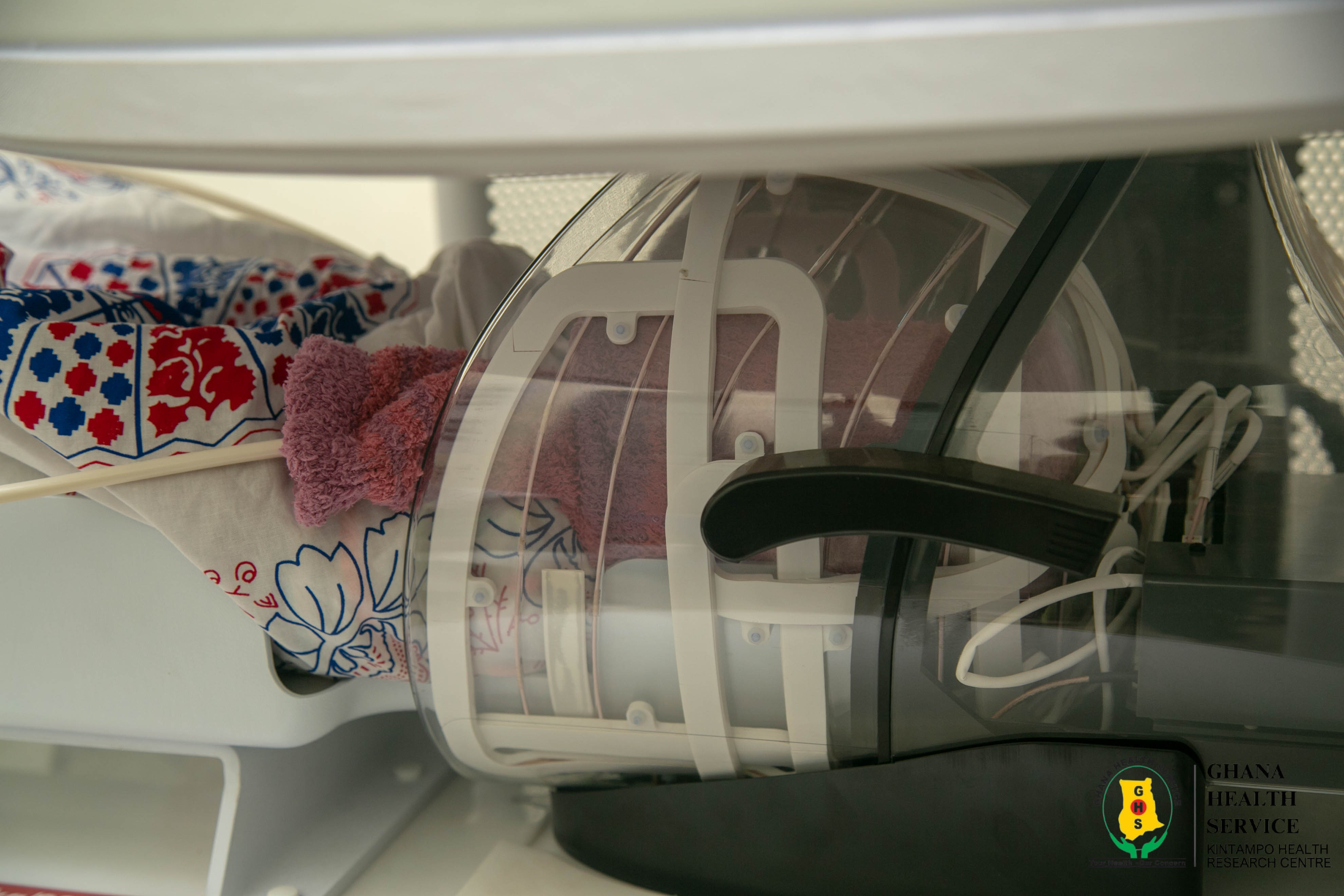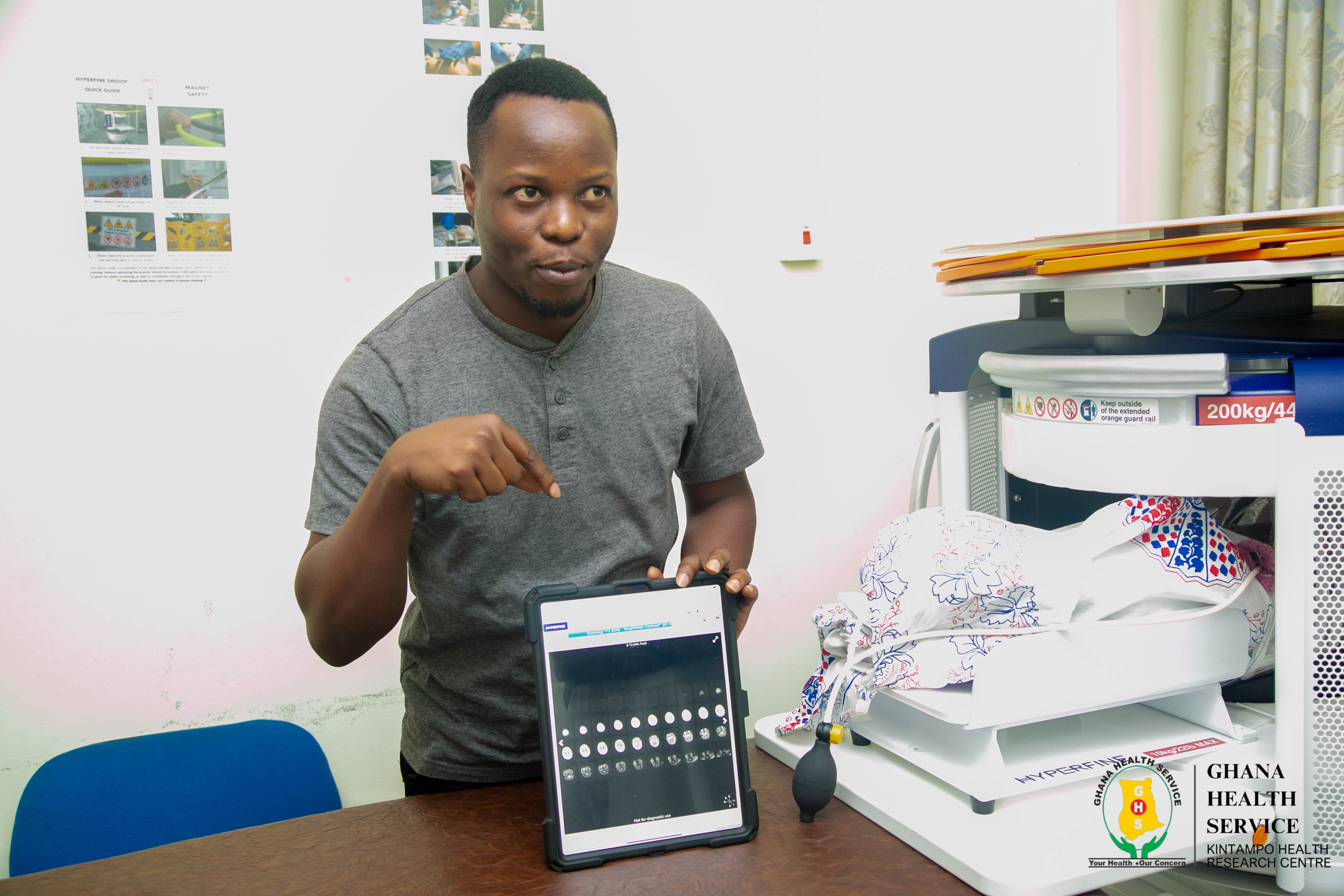New Study Shows Portable, Low-Cost MRI Scanners Are Reliable for Brain Research in Low-Resource Communities
June 03, 2025 | News Feed | Reading time: 4 min
A recent publication co-authored by researchers at the the Kintampo Health Research Centre (KHRC), reveals that portable ultra-low field (ULF) MRI scanners can reliably perform high-quality brain scans even in low-resource communities where electricity or specialized hospital equipment is limited. The researchers used a quality control framework that confirms the scanners' reliability for global brain research.
The research paper, titled “Characterization of Portable Ultra- Low Field MRI Scanners for Multi- Center Structural Neuroimaging” and published in the Human Brain Mapping journal in May 2025, forms part of the UNITY Project (Ultra-low field Neuroimaging In The Young), which uses 64-millitesla ULF MRI scanners to investigate early childhood brain development in 17 research Centres in 12 low- and middle-income countries.
This research project, funded by the Bill & Melinda Gates Foundation, assessed images from the ULF MRI scanners used in each study site across counties — including Ghana, Zambia, Pakistan, South Africa, Bangladesh, and Botswana. The ULF MRI scanners, developed by Hyperfine Inc., are designed to operate without the need for special rooms or infrastructure, and offers a mobile and affordable alternative to traditional MRI machines.
To test the performance of the scanners, the researchers collected and analyzed 244 phantom scans from each site. This marked the first global project to evaluate MRI image quality using a phantom — a specially designed object that mimics brain tissue. The researchers introduced a standardized quality control (QC) framework to assess image contrast, geometric accuracy, and temperature sensitivity. Each of the 17 study sites collected QC data regularly, based on what was practical in their local setting.
The findings showed that even with changes in temperature and other electronic signals, the image quality remained strong and consistent, which means the portable ULF MRI scanners can reliably support large-scale brain studies even in places where traditional MRI cannot work.
According to the researchers, temperature had a predictable effect on image quality, but could be managed with proper calibration and monitoring. Software updates to the scanners also had measurable impacts on image contrast and noise levels, which emphasizes the importance of routine QC checks.
KHRC is one of the UNITY project sites using this new MRI technology to study brain growth in early childhood. At KHRC, the study is called “The Impact of Maternal Anaemia on Neurodevelopmental Outcomes Among Infants” (ReMIND). It follows mothers and their babies to find out how anaemia during pregnancy might affect a baby’s brain development and overall health. It aims to identify early signs of developmental problems in babies under 12 months old, especially those whose mothers had anaemia. The goal is to help detect issues early so that support and care can be provided in time.
As the world works toward better health for all, this research shows how low-cost, portable equipment such as the Hyperfine MRI scanners can help bring advanced healthcare to places that need it most.
Read the full paper here: https://doi.org/10.1002/hbm.70217



